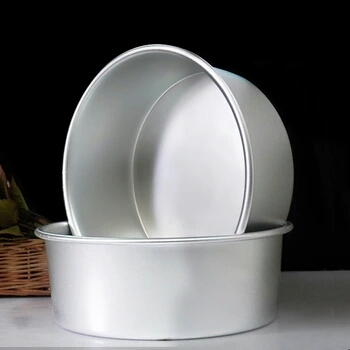TYPES OF BAKE WARE MATERIALS
Baking requires some tools to get the proper result desired and first on the list is baking pan. Trust me, a baker can’t do without baking pan; you know the way a tailor can’t do without his thread? That’s that same way a baker can’t do without baking pan because for obvious reasons, you can’t bake in a pot.
When I started baking, there were so many kinds of bake ware materials used to make the baking pan I wanted to buy and I was honestly not bothered because I just thought it was different design so I opted for the cheapest one. However, as time went on I noticed that there is difference between each of them.
Each bake ware material can have a different effect on the outcome of your baked goods. A dark coloured surface on the bake ware will cause the food to brown more easily unlike the light coloured surface. In our market, the locally made pans are made with aluminium sheets.
Today’s post will be a comprehensive post on the types of bake ware materials readily available in Nigerian markets, importance and care.
Some common materials are shown below;
ALUMINIUM: This is the popular cake pan found in Nigeria and probably the cheapest. Aluminium is a good bake ware material because it is a good conductor of heat which results in even baking, however, the shiny surface of aluminium may prevent proper browning. Aluminium bake ware is very durable and will not rust. Some cake pans I have right now was bought by my mother when she was still baking (that’s more than 6 years ago), that goes to show the durability of aluminium bake ware.

When it comes to aluminium bake ware, they are of two types; heavy gauge aluminium bake ware and thin aluminium bake ware. For best results opt for the heavy gauge aluminium bake ware although the thin flimsy aluminium may be cheaper.
For care, wash aluminium bake ware with hot soapy water.
ALUMINIUM FOIL: aluminium foil bake ware is constructed with a heavy gauge aluminium foil and is popular amongst people that sell cakes because you have the option of delivering it still in the cake pan without worrying about the cake pan being returned (packaging made easy). They are generally constructed as disposable cake pans but id thoroughly cleaned it can be re-used.
In case you want to re-use it, you can wash it with hot soapy water and bear in mind foil pans require careful handling to prevent them from being dented or bent out of shape.
GLASS: initially I didn’t know you could use glass to bake, thought it would crack in the oven (don’t give me that look, was never a good science student… lol)
Glass oven proof bake ware is made from tempered glass and conducts heat well. Unlike the aluminium bake ware, glass bake ware permits proper browning.
The important point to note when it comes to using glass bake ware is, oven proof glass can be taken out of the fridge to the oven but not vice versa, it should be allowed to cool down first when removed from the oven before putting it in a fridge. Also it is advisable to reduce the baking time by approximately 25 degrees.
When using glass bake ware, bear in mind that it’s glass you are dealing with so it doesn’t fall and break. When washing it, you can use hot soapy water and avoid using metal scrapers on it.
NON-STICK: I think it’s safe to say this is the most expensive type of bake ware you are likely to find in the Nigerian market. Non-stick bake ware consists of steel or aluminium that has a non stick coating applied to it. The coating allows food to be easily released easily from the pan.
The non-stick coating gives the bake ware a darker surface which absorbs heat more quickly than bright coloured bake ware. This may cause a problem because the food may become too browned or get dried out easily so baking time and temperature should be adjusted to avoid this problem.

Non-stick generally is delicate (I know how much my mum screams when we use metal utensils on her non-stick pot), so when washing it avoid using anything metal because that that may cause the non-stick coating to peel.
STAINLESS STEEL: this type of bake ware looks like the stainless steel tray that we all know. This type of bake ware is not recommended because it is a poor conductor of heat which would result in heat not being distributed evenly causing inconsistency in baked goods

To wash your stainless steel bake ware, use hot soapy water.
SILICONE: this type of bake ware is gradually gaining popularity in the Nigerian market. It is made of a flexible and bendable silicone material that can be used in the oven microwave and even freezer. It does not absorb heat like other bake ware but allows heat to transfer to the food evenly. It can withstand temperature ranging from -40 degrees to 580 degrees.

The silicone bake ware can be washed with hot soapy water.
This brings us to the end of the part one of the GUIDE TO BUYING BAKING PANS IN NIGERIA, the next post would be part two and I hope this was helpful to someone.
Confused about something? Please drop a comment and I will try my possible best to answer your questions.
Happy caking!
Love, Machi






1 thought on “GUIDE TO BUYING BAKING PANS IN NIGERIA (PART ONE)”